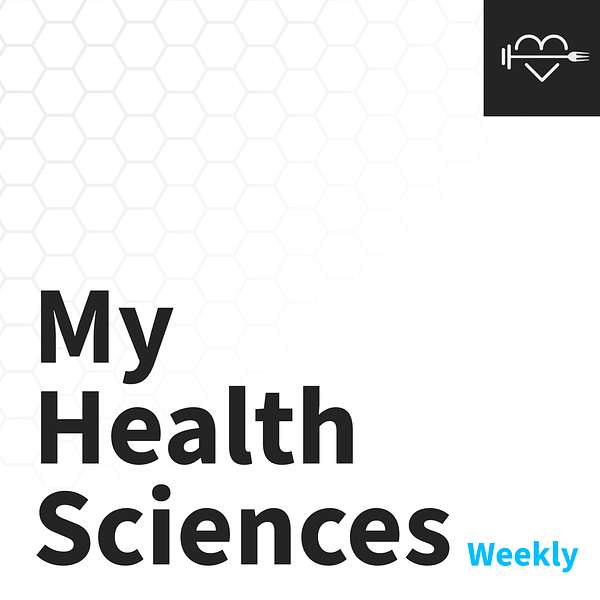
myHealthSciences Weekly
myHealthSciences Weekly
I Memorized All 197 Countries With 3 Simple Tactics
In one month, I memorized all 197 countries on earth using three simple tactics. On average, I practiced for ten minutes a day. It started out because it was fun. I then realized it provided context to world events. And now, I realize I'm building my cognitive reserve. So, what is cognitive reserve? Are there better activities for cognitive development? And what three tactics did I use to enhance learning efficiency? Well, let's get into it!
Watch the Video on YouTube
Full Article on the Website
---------------------------------------------------------------------------------------------
Free Health Kit and Newsletter Sign-up:
✅ Stream a Mobility Flow Workout
✅ Receive a Whole Foods Plant-Based Recipe
✅ Obtain the Top 10 Bedroom Sleep Tips
Get your free health kit and get subscribed to my weekly newsletter here.
Facebook | Instagram
I look forward to sharing my journey to healthier and happier!
-Brandon Zerbe
----------------------------------------------------------------------------------------
Disclaimers: I'm not a doctor, medical or financial professional. Just a dude posting videos on the internet. Please consult a professional before starting any program or new habit. Use of this information is strictly at your own risk. I will not assume any liability for direct or indirect losses or damages that may result from the use of information contained in this video including but not limited to economic loss, injury, illness, or death.
In one month, I memorized all 197 countries on earth using three simple tactics. On average, I practiced for ten minutes a day. It started out because it was fun. I then realized it provided context to world events. And now, I realize I’m building my cognitive reserve. So, what is cognitive reserve? Are there better activities for cognitive development? And what three tactics did I use to enhance learning efficiency? Well, let’s get into it!
Why Would I Do This? And Should You?
It started out as a friendly competition to see who knew more European countries. I lost by only identifying 19 out of 44. And it made me curious how many I’d remembered the next day. 25! So began the fun of quizzing myself daily on European countries. And then North American countries… and South American. African, Asian, Oceanic, until I knew every country on earth.
But what I realized along the way was geography provided context to world events and everyday life. When I heard El Salvador was acquiring bitcoin, I had a better understanding of their country size, location, and culture. When I watched a nature documentary highlighting hippos in Gabon, I better understood it’s climate and landscape. Learning what I once considered a waste of time, geography, was enriching my understanding of the world.
Cognitive Reserve
Most importantly, I was building my cognitive reserve. According to a 2019 review for preventing Alzheimer’s, “The most important factor of all for brain health and resilience as we age appears to be cognitive reserve.” This is the stockpile of neural connections developed in the brain that slow cognitive decline as you age. The larger the stockpile, the less risk for cognitive decline, dementia, and Alzheimer’s. It’s like saving a large nest egg before retirement so you don’t go broke. Or building ample muscle mass so you don’t become frail with age. [1]
This can be achieved through cognitively challenging activities. “We now know that complex real-life activities around one’s passion and purpose, such as challenging jobs, learning musical instruments, and speaking multiple languages, are most effective in optimizing mental processes and building cognitive reserve and brain capacity.” And while memorization practice, like studying all the countries, isn’t the most effective strategy, it does help build this cognitive reserve. So, what are the three tactics I used to accelerate the building of this cognitive reserve?
Strategies to Increase Learning Efficiency
As I practiced day after day, I started to realize strategies to improve my learning efficiency. I was able to remember more countries per day with less effort. And I retained the information for longer. I then came across a study called “How to Learn Effectively in Medical School.” My experience and this study yielded three key findings:
- Frequent Quizzing: It’s better than taking notes, rereading material, or traditional study. Quizzing yourself provides immediate feedback which enhances learning. In my case, the thing I did to learn all 197 countries was a daily quiz on Sporcle. That’s it.
- Active Recall: Passive recall is reviewing information that’s presented. It could be reading notes or even certain types of quizzes like multiple-choice questions where the information is already presented. What’s more effective is active recall. This forces you to generate the information. In my case, my Sporcle quiz started with an empty map. I had to actively recall the country name and type it down.
- Spaced Repetitions: It’s most effective to actively recall information in spaced repetitions. When I was learning three new countries, I’d actively recall the information 30 seconds after I learned it. Then I’d try to recall it 5 minutes later. Then again in a hour and finally again before bed. I didn’t redo the Sporcle quiz each time, but just tried to recall those three new countries I learned each day.
These three strategies allowed me to learn all 197 countries in about a month. The study around this concluded by saying, “Whenever students learn factual knowledge, they should test themselves while learning, actively recall information, and retest the facts at expanding time intervals to make learning most effective. These learning strategies help students learn the most in the least amount of time.” [2]
Final Thoughts
What started out as fun, turned into something useful in my day-to-day life. I then realized I was developing my cognitive reserve and improving my cognitive health. Finally, along the way I discovered three simple strategies to learn effectively: self-quizzing, active recall, and spaced repetitions. Now I’m excited to apply these lessons on a new topic! What should I learn next?
